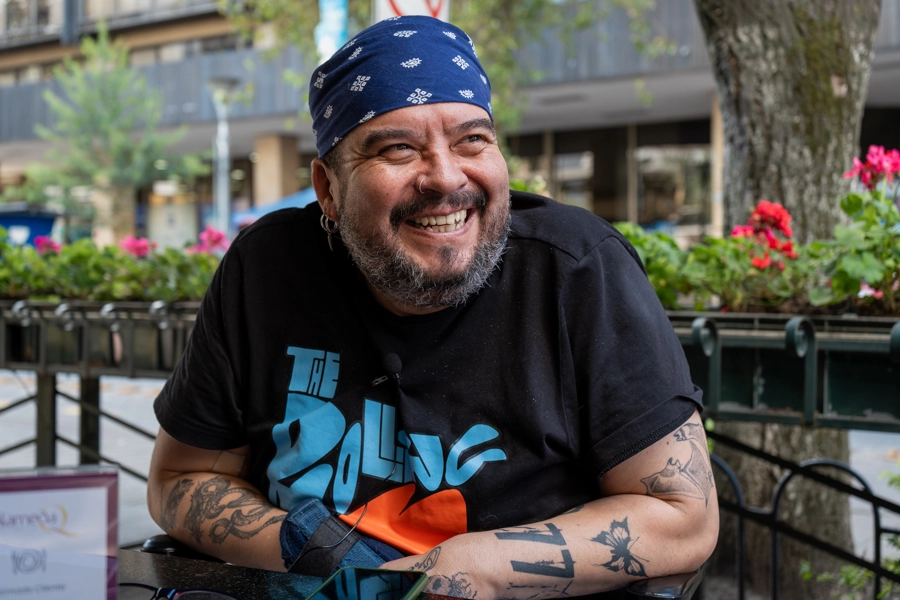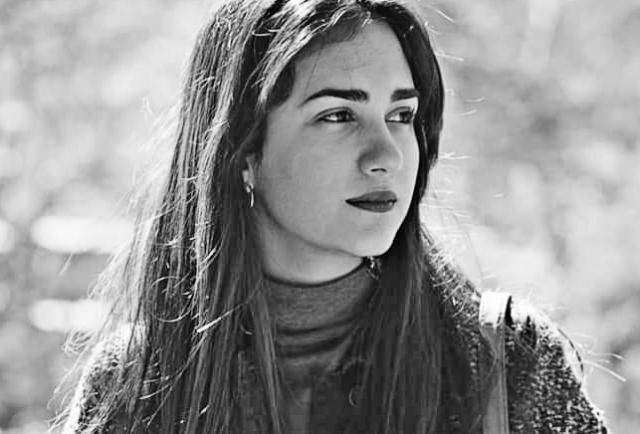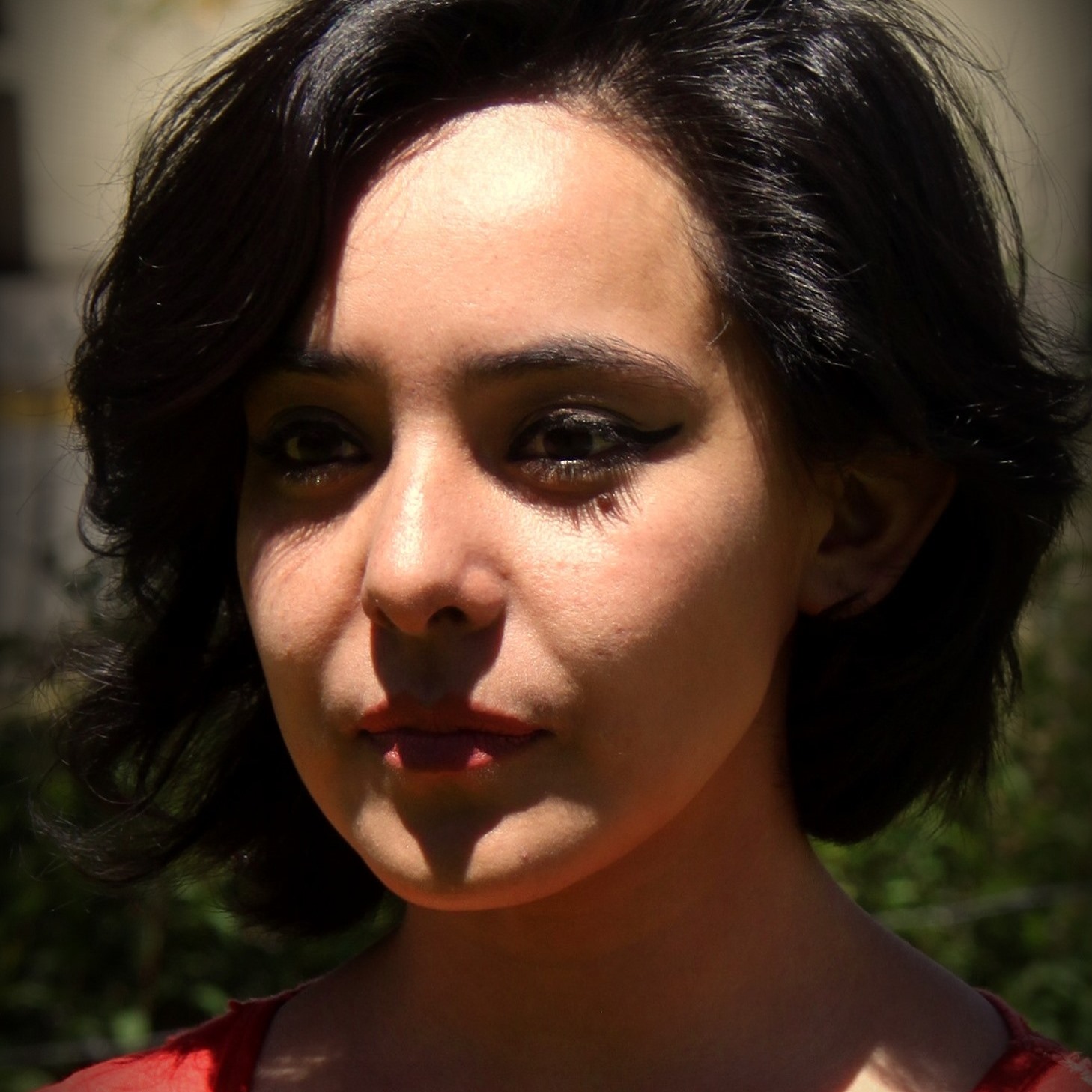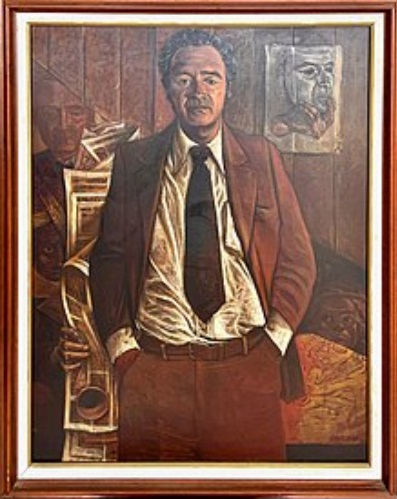Juan Secaira Velástegui (Quito, Ecuador, 1971) is a poet, essayist, and visual artist whose work delves into themes of suffering, resilience, and personal transformation. He has published several critically acclaimed poetry collections, including Construcción del vacío (2009; “Construction of the Void”) and No es dicha (2012; “It Is Not Happiness”), which won the Jorge Carrera Andrade National Poetry Prize. In recent years, Secaira has adapted his creative process in response to his diagnosis of Amyotrophic Lateral Sclerosis (ALS), incorporating visual art into his body of work. His 2023 collection Eclipsa los arribos (“Eclipses the Arrivals”) earned him the Paralelo Cero Poetry Prize, further cementing his legacy as one of Ecuador’s most poignant contemporary voices.
Early Life and Education
Juan Secaira Velástegui was born in Quito, Ecuador, in 1971. From an early age, he was immersed in literature, influenced by his family, particularly his father, who encouraged his visits to bookstores, and his mother, who supported his early creative endeavors. Secaira pursued higher education in Communication and Literature at the Pontificia Universidad Católica del Ecuador, laying the foundation for his future career as a writer, poet, and essayist.
Literary Career
Juan Secaira’s writing journey is marked by both critical acclaim and profound personal exploration. His early works include “Obsesiones urbanas” (2007), an essay on the narrative of Humberto Salvador, which demonstrated his analytical abilities, and “Construcción del vacío” (2009), a celebrated poetry collection that won him a special mention in the Ángel Miguel Pozanco Poetry Prize (Spain, 2008). His style is often described as a blend of evocative and challenging imagery, with strong existential themes.
Secaira’s poetry focuses on human experiences, particularly the tension between joy and suffering, life and death. He gained recognition with “No es dicha” (2012), which won the Jorge Carrera Andrade National Poetry Prize. His work continued to explore the dark undertones of daily life, often using visceral metaphors and intense emotional depth to reflect his struggles and societal observations.
Artistic Evolution and Personal Challenges
In 2010, Secaira began to experience the symptoms of Amyotrophic Lateral Sclerosis (ALS), a condition that profoundly affected his physical capabilities. By 2021, his diagnosis was confirmed, and he had lost the use of his right hand. However, this physical deterioration led to a creative transformation. Secaira took up visual art, teaching himself to paint with his left hand. His paintings, often created using acrylics on canvas, feature vibrant colors and abstract forms, reflecting the emotional intensity of his poetry.
Secaira’s ability to adapt his creative process in the face of ALS highlights his resilience. In interviews, he has spoken about how art became a shield and a way to “avoid looking directly at the illness,” much like Perseus slaying Medusa by using a shield to reflect her gaze.
Recognition and Later Works
In the 2020s, Secaira’s contributions to literature and art were further recognized. His 2023 collection “Eclipsa los arribos” won the Paralelo Cero Poetry Prize, and his poem “Sin resolución” earned him the Gustavo Garzón Prize. These works directly confront his experiences with ALS, showcasing both acceptance and defiance of his condition. Secaira has described “Eclipsa los arribos” as the “poem of the illness,” where he fully faces his condition after years of subtle references in previous works.
Despite the physical toll of his illness, Secaira’s work remains vibrant and impactful, continuing to explore themes of loss, resilience, and the beauty found in daily life.
Legacy and Impact
Juan Secaira’s poetry and visual art are notable for their emotional depth and existential reflection. His works transcend personal suffering, offering a universal meditation on life, death, and the human condition. As he continues to live with ALS, Secaira’s writing and art remain a testament to his strength, creativity, and philosophical inquiry into what it means to live fully, even in the face of adversity. His legacy as both a poet and a visual artist continues to grow, influencing readers and viewers alike.
Personal Life
Secaira lives in Quito with his wife and children, who have been a crucial source of support throughout his battle with ALS. His family and close friends play a significant role in his life, and he often reflects on their importance in interviews. Despite his illness, Secaira continues to write, paint, and engage with his community, finding fulfillment in his work and relationships.
Selected Works
- Obsesiones urbanas (2007) – Essay on the narrative of Humberto Salvador.
- Construcción del vacío (2009) – Poetry collection.
- No es dicha (2012, 2013) – Poetry collection, winner of the Jorge Carrera Andrade National Poetry Prize.
- Geografía de la edad (2013) – Poetry collection.
- Sujeto de ida (2014) – Poetry collection.
- Ribera de cristal (2015) – Poetry collection.
- El rasgo que se cubre. Antología Poética (2016) – Poetry anthology.
- La mitad opuesta (2017) – Poetry collection.
- Eclipsa los arribos (2023) – Poetry collection, winner of the Paralelo Cero Poetry Prize.
References
- Crear en Salamanca: Sobre ‘Ribera de cristal’, del ecuatoriano Juan Secaira Velástegui. Retrieved on September 30, 2024
- Poetripiados: El insomnio atacó sin piedad a otros treinta. Retrieved on September 30, 2024
- Clickultura: Poeta Juan Secaira gana I Premio Gustavo Garzón 2023. Retrieved on September 30, 2024
- Lapalabrabierta: Juan Secaira: victoria de la palabra hecha imagen. Retrieved on September 30, 2024
- GK City: Juan Secaira y el triunfo de la poesía por encima del cuerpo. Retrieved on September 30, 2024
- Letralia: Juan Secaira Velástegui – La poesía no tiene que ver con las generaciones. Retrieved on September 30, 2024
- Vallejo and Company: Poética de la enfermedad o la mitad opuesta de Juan Secaira. Retrieved on September 30, 2024



